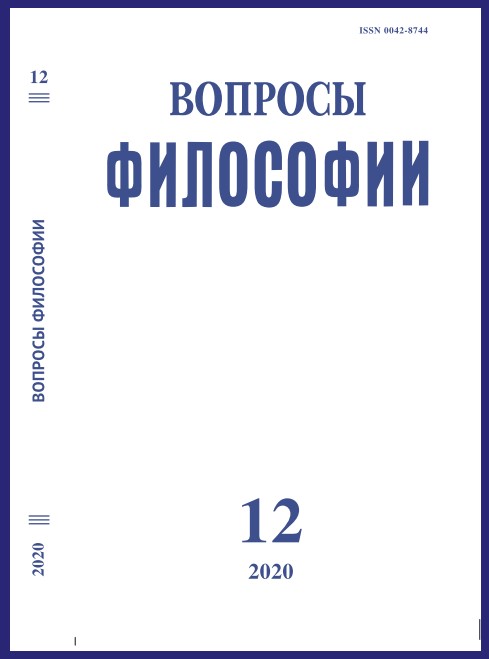Paradigm As an Ethics of Humility
DOI:
https://doi.org/10.21146/0042-8744-2020-12-132-138Keywords:
virtue epistemology, humility, gift, paradigm, ethics of scienceAbstract
An important element of the ethics of science is the professional code of scientific honesty transmitted by the scientific community. Basic research relies on the notion of gift-giving as a selfless ethical-cognitive relationship, one of the manifestations of which is scientific humility. The article establishes a link between the approach of virtue epistemology and ethical consequences from the concept of paradigm (T. Kuhn). Kuhn’s normative image of science suggests that the scientist assumes paradigmatic rules and limitations without any violence. That is why paradigm represents a huge advantage for a “normal scientist” allowing her to solve only those particular puzzles that really interest her. Paradigm appears as a gift of a mythical revolutionary hero to the “normal” scientist. Scientific honesty forms a normative basis for basic research because scientists do not sell results to each other, do not extract income at the expense of the scientific community and therefore do not expect deception in the style of “bought cheaper, sold more expensive”. The primary meaning of the ethics of science is based on the selfless giving. Humility is the ability to accept the gift of knowledge and acknowledgement gratefully, to take on the duty of recognition and to be ready to pass on the same gift by inheritance.

